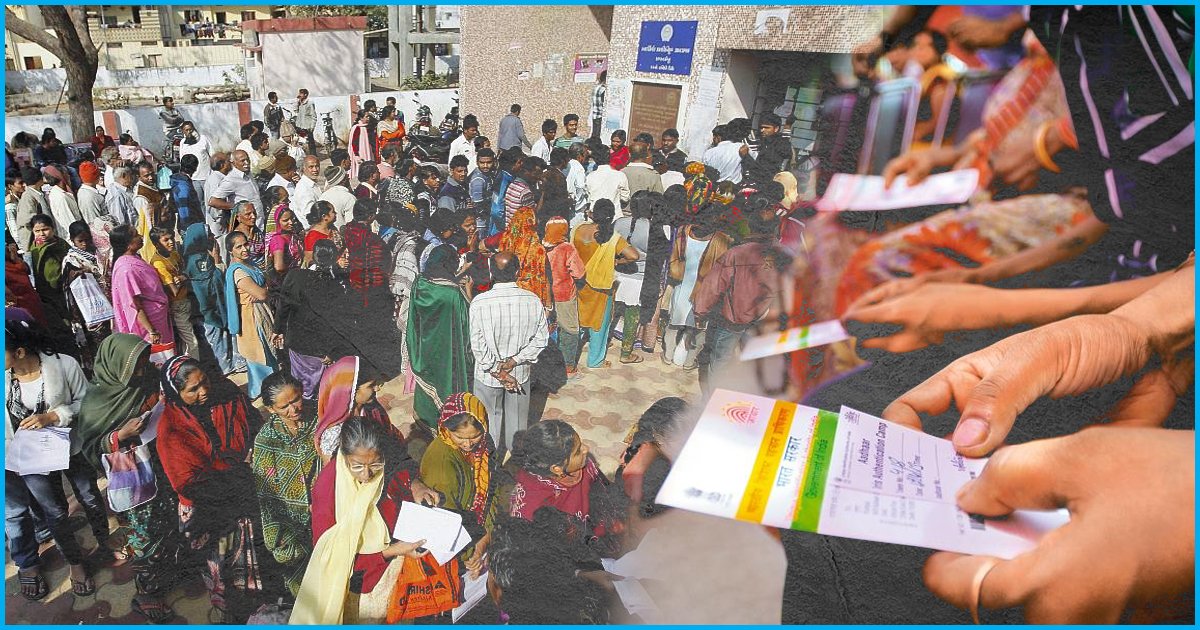
The Poor Are Least Benefited By Aadhaar: Study By RBI Arm
22 Dec 2017 11:28 AM GMT
With the ensuing debate on whether Aadhaar card be made mandatory or not, the latest press release by the Reserve Bank of India has fuelled the issue. The Institute for Development and Research in banking Technology recently published a research paper which says that the benefits of Aadhaar link have been mixed, “with not much benefit to those in the last mile.” This has clearly put the issue of Aadhaar again in the forefront with the banks regularly reminding the customers to link their bank accounts with Aadhaar, failing which their accounts will be suspended.
WHAT IS AADHAAR?
Aadhaar Card is a 12 digit Unique Identity number provided to all the Indian citizens on the basis of their demographic and biometric profile. The Ministry of Electronics and Information Technology, Government of India came out with this UI. From its inception, Aadhaar has been the centre of various controversies. Its feasibility was questioned with R.Ramakumar, an economist at the Tata Institute of Social Sciences bringing out a paper on it in 2010. He said that the project was being randomly implemented without taking into view its goals. Rajanish Das of IIM Ahmedabad in 2011 questioned the quality of the huge number of biometric data to be collected for the same. With many thinkers and analytics raising their own questions on the feasibility of Aadhaar, the menaces that occurred due to Aadhaar have not escaped our eyes.
THE MENACES
On October 15, 2017, 11 year old Santosh Kumari of Simdega district in Jharkhand died due to starvation after her family couldn’t get ration from the Public Distribution Shop as their card was not linked to Aadhaar. Echoing the same situation, a 50 year old woman Shakina from UP died after starving for five days. She couldn’t acquire food grains from the PDS as her fingerprints couldn’t be verified for Aadhaar. In both these instances Aadhaar was put to question on the pedestal on humanitarian ground. Both of the families begged for food grains but couldn’t get any due to a faulty Aadhaar linkage procedure.
In December 5, 2017, another news resurfaced where Sajida Begum, 65, who is suffering from Leprosy stopped getting her pension since her bank account is not linked to Aadhaar. She has lost her fingers and her eyesight due to the disease and any chances of biometric authentication could be ruled out. Although after the media intervened, she finally got her pension but the utility of Aadhaar put a big question mark in front of us. On another instance, a Special Task Force of Kolkata police arrested two Bangladeshi suspects on November 21 and recovered multiple fake Aadhaar cards. Naturally doubt were raised about how could these terrorists got hold of the biometric data and possessed more than one card at a time. With the recent RBI release, it calls for nothing but caution.
WHAT DOES THE STUDY SAY?
S.Ananth, who carried out the study, says that the statistics they have gathered point out to larger problem camouflaged like the patterns of the Public Distribution System under the tagline of government benefits. The research says, “This raises important questions about the efficiency of Aadhaar and the government’s claims about their introduction of anywhere-rations through their programmes called ePoS,’’. He points out another interesting paradox, “Though the numbers indicate a halving of failures from a high of 7.14 per cent in January 2017 to 3.56 per cent in June 2017, this is accompanied by a commensurate 61 per cent fall in the number of authentications in June compared with January”.
It remains to see whether the issue of Aadhaar is resolved in the long run and how far its credibility rests when it comes to catering Government benefits.
 All section
All section













